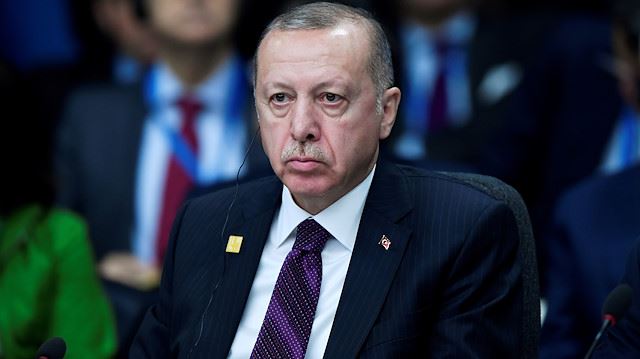Oil-rich Libya, which has been in a whirlwind of instability ever since Muammar Gaddafi was ousted in 2011, has now entered a critical period. Turkey
Oil-rich Libya, which has been in a whirlwind of instability ever since Muammar Gaddafi was ousted in 2011, has now entered a critical period.
Turkey and Libya signed a memorandum of understanding on Nov. 27, which defines their maritime borders, opening a new chapter in the East Mediterranean. It carves out a slanting sea corridor of maritime boundaries at the closest points between Libya and Turkey, potentially clearing the way for oil and gas search there.
Speaking exclusively to Yeni Şafak daily, Middle East expert Gökhan Bozbaş evaluated the situation, noted that states of the anti-Turkey axis will increase support to eastern Libyan commander Khalifa Haftar in a bid to oust Ankara from the region.
“Looking at preliminary reactions to Turkey’s deal, we can see that states are spewing hatred. There is nothing questionable about the deal with Libya’s internationally-recognized government of Tripoli, however Greece’s reaction needs to be evaluated in its simplest form,” he said.

Greece lodged objections to the United Nations over the accord between Libya and Turkey as a violation of international law, a Greek government spokesman said on Tuesday.
Greece expelled the Libyan ambassador in response to the deal last week, infuriated at a pact which skirts the Greek island of Crete and infringes, in Athens’s view, its continental shelf.
The memorandum asserts Turkey’s rights in the Eastern Mediterranean in the face of unilateral drilling by the Greek Cypriot administration, clarifying that the Turkish Republic of Northern Cyprus (TRNC) also has rights to the resources in the area.
“It is obvious that after this agreement, serious steps will be taken against the Tripoli government both on the field and in the international arena. Haftar will be supported on the ground and appeals will be made to organizations like the EU, UN and NATO to annul this accord,” Bozbaş added.
Erdoğan: Turkey and Libya can conduct joint explorations in eastern Med
With the maritime deal between Turkey and Libya, Ankara has shown the world its determination to protect its rights under international law, Turkey’s President Recep Tayyip Erdogan said Monday.Erdogan was speaking at a live televised interview with TRT, country’s public broadcaster.Turkey and Libya can carry out joint exploration operations in the eastern Mediterranean after the two sides signed a deal on maritime boundaries, Erdoğan added.On Nov. 27, Turkey and Libya’s UN-recognized Government of National Accord (GNA) in Tripoli signed the bilateral memorandum.The memorandum asserts Turkey’s rights in the Eastern Mediterranean in the face of unilateral drilling by the Greek Cypriot administration, clarifying that the Turkish Republic of Northern Cyprus (TRNC) also has rights to the resources in the area.Noting that Turkey has the longest coastline in the Eastern Mediterranean, Erdogan said: “With this deal, we have taken a rightful step within the framework of international law against the approaches tried to be imposed by Greece and the Greek Cypriot administration and the claims of maritime jurisdictions aiming to confine our country to the Gulf of Antalya.”Erdogan recalled that a step was taken on the issue long ago, but it could not be proceeded due to then Libyan leader Muammar Gaddafi’s death.Since 2011, when longtime ruler Gaddafi was ousted and killed, Libya has seen the emergence of two rival seats of power: one in eastern Libya, to which military commander Khalifa Haftar is affiliated, and the Government of National Accord, which enjoys UN recognition.Erdogan also said that some countries were disturbed by the deal, while similar deals were inked by Greek Cypriot administration, Egypt, Lebanon and Israel in the past 20 years, ignoring Turkey’s rights and international law in the Eastern Mediterranean.Speaking about Turkey’s exploration and drilling activities in there, Erdogan said that his country is set to buy another drill ship and that the country will carry on its activities not only in Mediterranean but also in Black Sea and “maybe even” in international waters.Turkey currently has two drilling and two seismic exploration ships, he added.“Other international actors cannot conduct exploration activities in the areas marked in the memorandum.“Greek Cypriots, Egypt, Greece and Israel cannot establish a natural gas transmission line without Turkey’s consent,” he added.To a question about a possible military assistance call from Libya’s GNA, Erdogan said such a call from the Tripoli-based government, and Libyan nation gives Turkey that right to answer the call.“In case of such an invitation, Turkey will decide itself about what kind of initiative to undertake,” Erdogan said.He also noted that Russia, the UAE and Egypt were violating the UN embargo on arms sales to Libya by providing military assistance to Haftar forces in the country.On Russia’s approach to Libya, Erdogan said he wants to have a phone call with Russian counterpart Vladimir Putin within a week to talk about the issue.He noted that any support given to Haftar is illegal just like his forces.Erdogan also said Putin will visit Istanbul on Jan. 8 and they will inaugurate the TurkStream project.The TurkStream natural gas pipeline has a total capacity of 31.5 billion cubic meters, out of which the first line will carry a capacity of 15.75 billion cubic meters of Russian gas to Turkish consumers. The second line will carry another 15.75 billion cubic meters of gas to Europe via Turkey.- Safe zone in northern SyriaOn the planned safe zone in northern Syria, Erdogan said both deals reached separately with Russia and the U.S. have failed to yield the expected result.Turkey aims to settle 1 million Syrians in areas between Tal Abyad and Ras al-Ayn in planned safe zone in northern Syria, the Turkish president said.Under the deals with the U.S. and Russia, Turkey paused anti-terror Operation Peace Spring to allow the withdrawal of YPG/PKK terrorists from a planned Syrian safe zone.The operation was launched to eliminate YPG/PKK terrorists from northern Syria east of the Euphrates River in order to secure Turkey’s borders, aid in the safe return of Syrian refugees and ensure Syria’s territorial integrity.Ankara wants YPG/PKK terrorists to withdraw from the region so a safe zone can be created to pave the way for the safe return of some 2 million refugees.In its more than 30-year terror campaign against Turkey, the PKK — listed as a terrorist organization by Turkey, the U.S. and EU — has been responsible for the deaths of nearly 40,000 people, including women, children and infants. The terrorist YPG is the PKK’s Syrian offshoot.
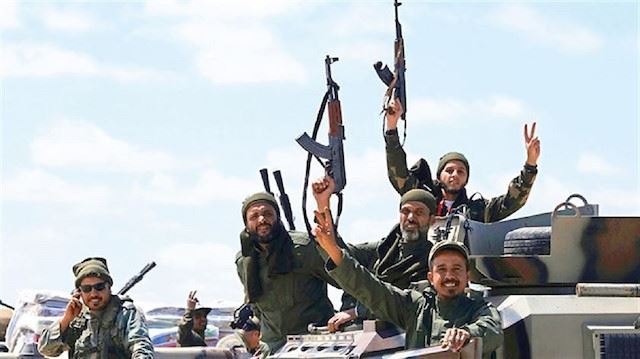
Israel secretly trains Haftar gangs in guerrilla warfare with Egypt’s help
Forces of eastern Libyan commander General Khalifa Haftar have reportedly received urban guerrilla warfare training from Israel’s Special Forces on Libyan soil after crossing into the war-torn country from Egypt, according to a new bombshell report.Coordination courtesy of EgyptAccording to a report by the Arabic-language news website The New Arab, citing sources in Libya and Egypt, Israel’s military are said to have crossed into the Haftar-occupied eastern Libya in coordination with Egypt, marking the first such incident, in order to provide guerrilla training to Haftar forces, in accordance with a security agreement signed by the two parties.Israeli soldiers provided training to Haftar’s fighters on Libyan soil throughout the months of August and September 2019 following their crossover into the eastern parts of the country.Target: TripoliHaftar was unable to capture Tripoli following an assault launched back in April despite receiving support from the UAE, Saudi Arabia, Egypt and France, in addition to training for his forces from Israel.Found to be tactically lacking against GNA forcces, it was decided that Haftar’s fighters would secretly receive guerrilla warfare training from Israel with the aim of facilitating the capture of Tripoli.Military reinforcements in 2018Khalifa Haftar had held several covert meetings with the Israeli government and the Mossad that were arranged by his main backers in the UAE.In the aftermath of meetings held in the summer of 2018, Haftar received night vision equipment and sniper rifles from Israel as part of a military munitions shipment.A warplane belonging to forces loyal to the East Libya-based military commander was also downed Saturday and its pilot captured.As a result, the number of warplanes belonging to Haftar forces that have been shot down rose to 15.In April, Haftar’s forces launched a military campaign to capture Tripoli from the GNA but have so far failed to progress beyond the city’s outskirts.According to UN data, over 1,000 people have been killed since the start of the operation and more than 5,000 injured.Since the ouster of late leader Muammar Gaddafi in 2011, two seats of power have emerged in Libya: one in eastern Libya supported mainly by Egypt and the United Arab Emirates and another in Tripoli, which enjoys UN and international recognition.
Conflicts to take Libya by storm
“Ever since 2010 regional balances have been shaky. The shifts that occurred in the wake of the Arab Spring were at first to Turkey’s advantage. However, especially with the coup attempt in Egypt, the Daesh terror group gaining strength and Haftar gaining ground in Libya’s civil war shifted the balances against Turkey. Hence, Turkey, with this deal, made a move to once again tip the scale in its favor. It is possible that this situation could fuel conflicts in Libya, because all national and international actors that oppose Turkey will toughen their stance against the Tripoli government due to it signing an agreement with Ankara,” Bozbaş said.
In April, Haftar’s forces launched a military campaign to capture Tripoli from the GNA but have so far failed to progress beyond the city’s outskirts.
Found to be tactically lacking against GNA forces, it was decided that Haftar’s fighters would secretly receive guerrilla warfare training from Israel with the aim of facilitating the capture of Tripoli.
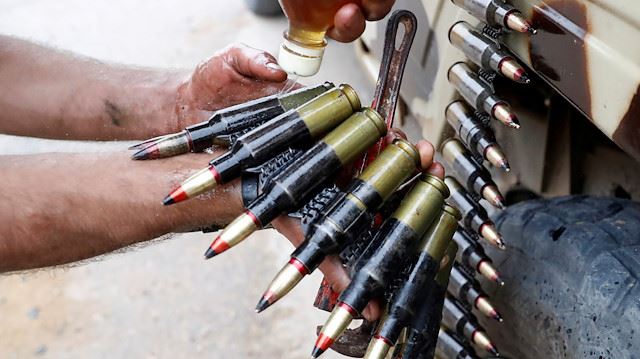
Haftar’s forces repelled in Libya
Libya’s UN-recognized Government of National Accord (GNA) said Sunday that forces loyal to military commander Khalifa Haftar were prevented from entering the capital.GNA military spokesman Mohammed Kanunu said the multinational forces had planned to enter Tripoli on Friday but were caught in a narrow field in the countryside and neutralized before attacking the city.He said the GNA named the successful operation “the Friday Victory”.A warplane belonging to forces loyal to the East Libya-based military commander was also downed Saturday and its pilot captured.As a result, the number of warplanes belonging to Haftar forces that have been shot down rose to 15.In April, Haftar’s forces launched a military campaign to capture Tripoli from the GNA but have so far failed to progress beyond the city’s outskirts.According to UN data, over 1,000 people have been killed since the start of the operation and more than 5,000 injured.Since the ouster of late leader Muammar Gaddafi in 2011, two seats of power have emerged in Libya: one in eastern Libya supported mainly by Egypt and the United Arab Emirates and another in Tripoli, which enjoys UN and international recognition.
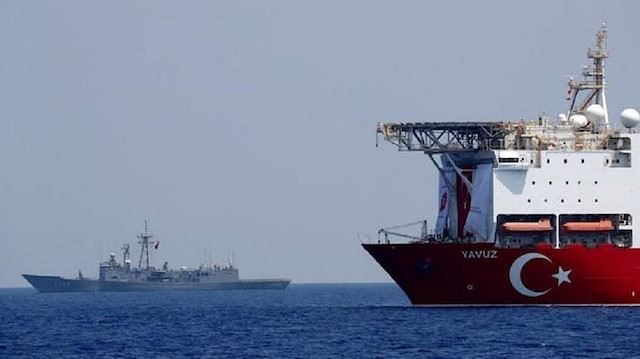
Libya says maritime deal with Turkey goes into effect
Libya’s UN-recognized Government of National Accord (GNA) on Sunday announced that pacts with Turkey over maritime jurisdiction areas as well as military and security cooperation went into effect.According to the Libyan GNA’s Justice Ministry, the internationally recognized government’s Presidential Council requested relevant departments to bring the pacts into force following their ratification.The pacts are set to be published in Libya’s Official Gazette at the beginning of 2020, the ministry added.Signed on Nov. 27 and passed by Turkey’s parliament this Thursday, the memorandum determining both countries’ marine jurisdictions rejects unilateral and illegal activities by other regional countries and international firms and aims to protect the rights of both countries in line with the international law of the sea.Turkey declared the maritime pact went into effect on Saturday.According to the U.S. Geological Survey, the Mediterranean region is estimated to boast millions of barrels of oil and trillions of cubic meters of natural gas, worth hundreds of billions of dollars.Turkey, for its part, has urged regional countries to take an equality-based approach, but its calls have largely fallen on deaf ears. Turkey continues its drilling and discovery operations in the region under the protection of the country’s navy.In a statement on Saturday, Foreign Minister Mevlut Cavusoglu said Turkey does not want any escalation in the region but stands ready to respond to possible hostilities.Since 2011, when longtime ruler Muammar Gaddafi was ousted and killed, Libya has seen the emergence of two rival seats of power: one in eastern Libya, to which military commander Khalifa Haftar is affiliated, and the Government of National Accord, which enjoys UN recognition.* Writing by Ali Murat Alhas
According to UN data, over 1,000 people have been killed since the start of the operation and more than 5,000 injured.
Since the ouster of late leader Muammar Gaddafi in 2011, two seats of power have emerged in Libya: one in eastern Libya supported mainly by Egypt and the United Arab Emirates and another in Tripoli, which enjoys UN and international recognition.
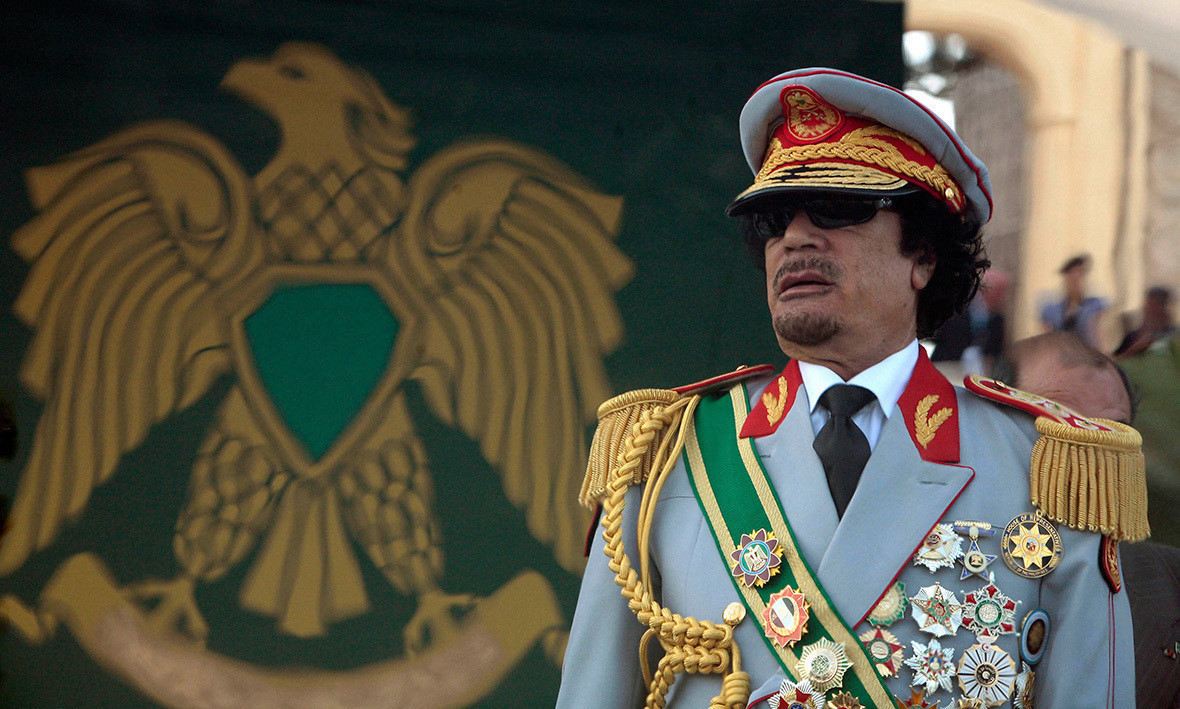
How will Egypt react to Turkey’s deal with Libya?
“The Southern Cyprus administration, Egypt and Israel conducted the agreement that we made with Libya in the early 2000s; by dividing the Eastern Mediterranean into 13 parcels, they started gas explorations despite all our opposition. The deal we struck with Libya shapes the western border of the deal that these three states made. Egypt comes off worst, as Libya is Cairo’s biggest alternative on the transition route of the discovered gas. The best Egypt could do to counter-act Turkey’s move is to strike a similar deal with the Greek Cypriot administration.”
Libya’s neighbor Egypt dismissed the deal as “illegal” as did Cyprus, while Greece has said any such accord would be geographically absurd because it ignored the presence of the Greek island of Crete between the coasts of Turkey and Libya.
Haftar was unable to capture Tripoli following an assault launched back in April despite receiving support from the UAE, Saudi Arabia, Egypt and France, in addition to training for his forces from Israel.
